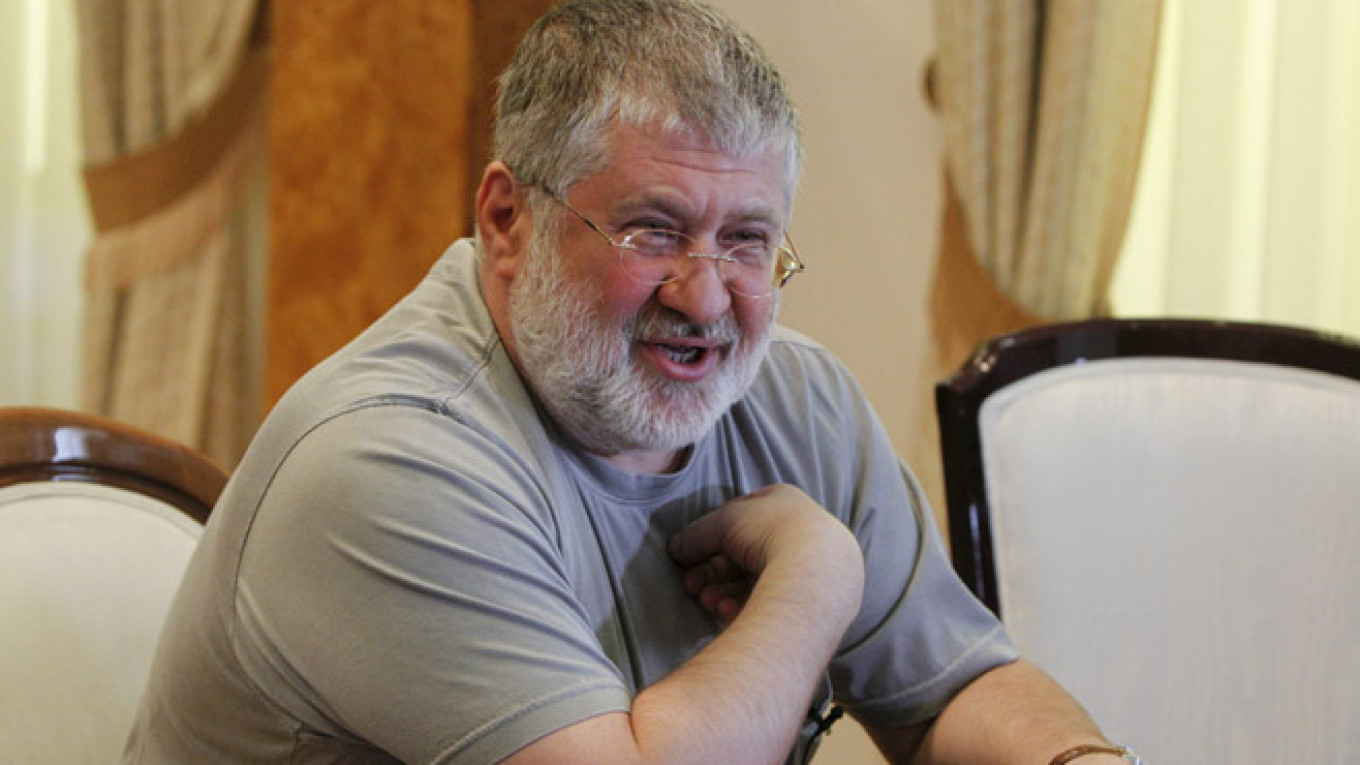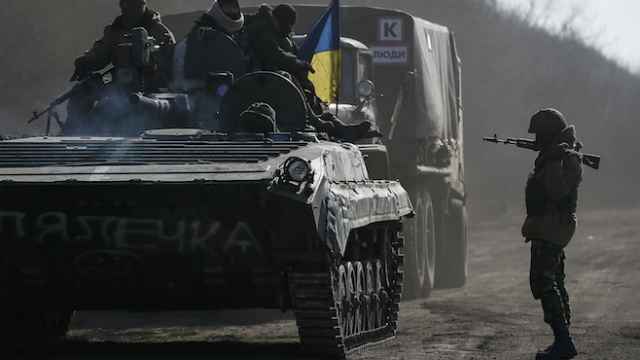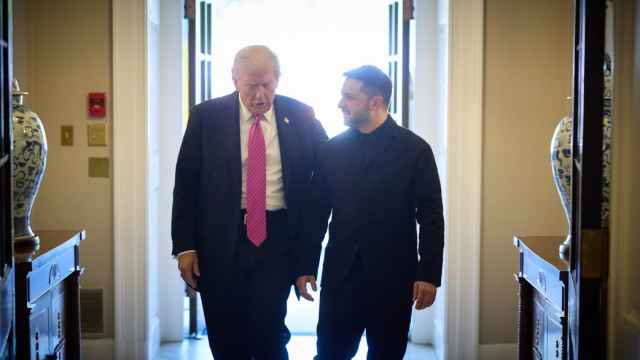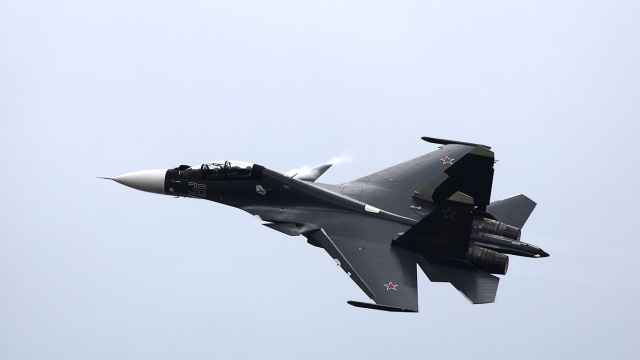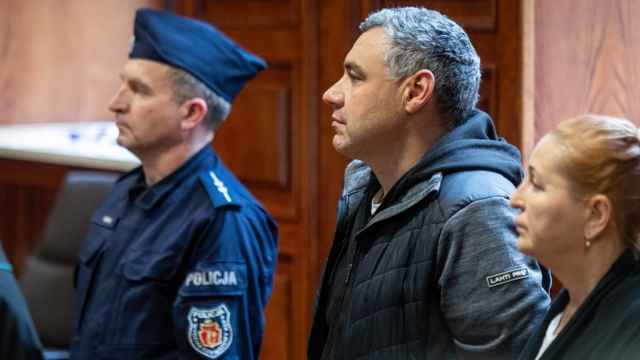When the incoming Ukrainian government faced the threat of sweeping separatism in the country's eastern regions one year ago, pugnacious billionaire Ihor Kolomoisky was the only oligarch to help.
As other tycoons hovered on the fence, unsure of how the ongoing fighting between pro-Russian rebels and government troops in the country's east would end, Kolomoisky assumed the office of governor of the key Dnipropetrovsk region, funding voluntary military battalions to fight against the rebels and offering hefty cash rewards for each captured separatist mercenary or government building returned to state control.
But as Kolomoisky, an owner of Ukraine's largest bank PrivatBank, gained political power in his stronghold, he sought to expand his influence to the national level and have a say in Ukraine's defense and foreign policies — ambitions that were at odds with the government's attempts to assert its power throughout the country, experts said.
Now the precarious balance of powers holding Ukraine together appear to be cracking. During the past week, Kolomoisky and his team have clashed with Ukraine's president —fellow tycoon Petro Poroshenko — and the central government in Kiev over the control of key national companies. While Russia may be indifferent to the ultimate winner in the struggle, the conflict itself plays in Russia's favor, said Alexei Makarkin, deputy head of the Moscow-based think tank Center for Political Technologies.
"The more conflicts [in Ukraine], the better for Russia, because this way the Kiev government becomes weaker and is compromised in the eyes of the West. The Ukrainians [factions] understand this and use it to blackmail and threaten each other" in order to get what they want, Makarkin told The Moscow Times.
Prize Assets
On Sunday, armed men in full military gear bearing a striking resemblance to the volunteer battalions that Kolomoisky has financed during the last year surrounded the headquarters of Ukrnafta, Ukraine's leading oil company.
The conflict was provoked by a state attempt to regain control over Ukraine's oil extraction and oil transportation companies Ukrnafta and UkrTransNafta, which Kolomoisky has long exercised management control over despite only owning minority stakes.
Kolomoisky, whose sponsored armed groups include the Dnepr-1 battalion that many pundits have called his private army, denied that members of any of his volunteer battalions participated in the raid on the company headquarters.
The tycoon himself appeared at the offices of both companies, claiming Thursday that UkrTransNafta had been raided by "Russian saboteurs."
Trading Accusations
The government's reaction was swift. In a speech to military commanders Monday, Poroshenko vowed that regional governors would not be allowed to have their own "pocket armies — that's over!"
Arsen Avakov, the country's Interior Minister, issued an ultimatum Monday, ordering all armed groups not under state control to give up their arms within 24 hours.
The head of Ukraine's Security Service, Valentin Nalivaichenko, on Monday accused Kolomoisky's deputies in the Dnipropetrovsk administration and allies in the parliament of shielding criminal gangs responsible for abductions, murder and smuggling in the Donetsk and Dnipropetrovsk regions.
In retaliation, at least five members of Ukraine's parliament apparently loyal to Kolomoisky said they would leave Poroshenko's party.
At a news conference in Dnipropetrovsk on Monday, one of these deputies, Vitaly Kuprin, accused Poroshenko of "the mass murder of civilians in the Donetsk region," Ukrainian news website Vesti.ua reported, in a move that could deepen the conflict-torn country's rifts even further.
Victory at the Cost of Ukraine
The cost of Kolomoisky winning this personal conflict would be "destroying Ukraine," according to Vladimir Fesenko, head of the Kiev-based Penta Center for Applied Political Research.
"Thanks to him, Dnipropetrovsk did not turn into Donetsk, though separatist sentiment there [in Dnipropetrovsk] was admittedly much weaker," Fesenko said in a phone interview from Kiev.
"Now he cannot preserve everything as it is — he has to accept a compromise," he said.
Enemy of the Kremlin
While the Kremlin has accused Kolomoisky of a catalog of sins during the past year, ironically it is in Russia's interests for the tycoon to retain some of his power, as he is someone who argues for Ukraine's decentralization, said Mikhail Pogrebinsky of the Center of Political and Conflict Studies in Kiev.
"He is someone who promotes the idea of giving more powers to the regions, which coincides with Russia's policy," he said in a phone interview.
A year ago Kolomoisky described President Vladimir Putin as "a diminutive schizophrenic" who is "completely unreasonable and crazy" during a meeting with local government members in Dnipropetrovsk.
The next day, Putin responded by calling Kolomoisky a crook.
"He even managed to cheat our oligarch Roman Abramovich two or three years ago. Scammed him, as our intellectuals like to say. They signed some deal, Abramovich transferred several billion dollars, while this guy never delivered and pocketed the money," Putin told journalists during a meeting on the unfolding Ukraine crisis.
In June, Russia's Investigative Committee opened a criminal case against Kolomoisky, accusing him of organizing murder, kidnapping and using banned methods of warfare.
Time to Bury the Hatchet?
But despite his support for the Kiev government and deep enmity with Russia, Kolomoisky has recently expressed support for reaching a compromise with the pro-Russian rebel-held areas of eastern Ukraine.
Kolomoisky said Monday in an interview with the 1+1 television channel, which he owns, that the Ukrainian government must find a way to reconcile with the leaders of the self-proclaimed Donetsk and Luhansk people's republics.
"We have two subjects that we do not recognize, but that have achieved a certain success, unfortunately. They exist," he said.
That stance brings him closer to the position of Moscow, which has pushed throughout the Ukraine conflict for greater autonomy for the regions.
"At the same time, the overall situation demonstrates that there is no consolidation in Ukraine, and the whole power struggle resembles a circus more than anything else," said Pogrebinsky.
Contact the author at [email protected]
A Message from The Moscow Times:
Dear readers,
We are facing unprecedented challenges. Russia's Prosecutor General's Office has designated The Moscow Times as an "undesirable" organization, criminalizing our work and putting our staff at risk of prosecution. This follows our earlier unjust labeling as a "foreign agent."
These actions are direct attempts to silence independent journalism in Russia. The authorities claim our work "discredits the decisions of the Russian leadership." We see things differently: we strive to provide accurate, unbiased reporting on Russia.
We, the journalists of The Moscow Times, refuse to be silenced. But to continue our work, we need your help.
Your support, no matter how small, makes a world of difference. If you can, please support us monthly starting from just $2. It's quick to set up, and every contribution makes a significant impact.
By supporting The Moscow Times, you're defending open, independent journalism in the face of repression. Thank you for standing with us.
Remind me later.


